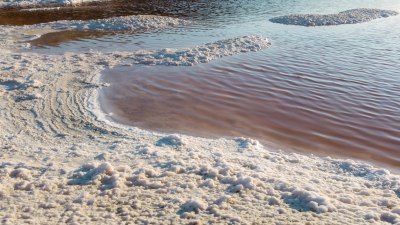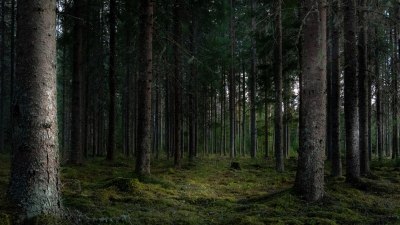Learning to Make Local Perfumes and Scents in Workshops
Discover the art of crafting unique local perfumes and scents in engaging workshops. Learn techniques, ingredients, and more.

Perfume-making is an ancient art that allows individuals to express their creativity through scents that evoke memories and emotions. Local perfume workshops are gaining popularity as they not only provide knowledge about fragrance creation but also delve into the cultural significance of local ingredients. In these workshops, participants learn to blend essential oils and other aromatic compounds to create custom scents that resonate with their personal style or the essence of their surroundings.
One of the primary objectives of attending a local perfume-making workshop is to understand the fundamentals of scent composition. Participants begin by learning about the three main components of a fragrance: the top notes, middle notes, and base notes. The top notes are the initial scents that are perceived upon application, usually light and fresh. These scents are typically fleeting and evaporate quickly. Middle notes, or heart notes, become apparent after the top notes dissipate. They form the core of the fragrance and usually possess a richer scent profile. Lastly, base notes are the longest-lasting scents that create the foundation of the perfume. They add depth and warmth and can linger for hours or even days on the skin.
During the workshop, learners receive hands-on experience in selecting fragrance oils to create their unique compositions. Instructors often guide students through the process, sharing insights into the different methods for combining various oils effectively. Participants can experiment with floral, fruity, spicy, woody, and citrus scents, exploring how diverse combinations can lead to unexpected and delightful fragrances. This hands-on experimentation fosters an appreciation for the intricacies of scent blending and the aromatic potential of local botanicals.
The workshops often emphasize the importance of local ingredients, which can provide a distinct character to each perfume. Many regions have unique flora that can be harvested sustainably and incorporated into fragrance making. Instructors encourage participants to think regionally when selecting their materials. Spruce tips, lavender, rosemary, cedar, and citrus peel are a few examples of commonly found ingredients that can add a wonderful depth to local scents. By using these materials, participants not only create something special for themselves but also celebrate the beauty and diversity of their environment.
Aside from practical techniques, workshops often include discussions on the history and cultural significance of fragrance in various societies. Perfume-making skills have been passed down through generations, and many cultures have their unique traditions surrounding scent. Understanding these cultural narratives enhances the fragrance creation experience, offering context and appreciation for the artistry behind each blend. In some cultures, scents are revered for their medicinal properties as well, presenting another layer to the practice of perfume making.
Creating a signature scent can be an empowering experience. It provides an avenue for self-expression and individuality. Participants often find joy in the creative process, from selecting ingredients to the final steps of blending and bottling their perfume. This sense of accomplishment can lead to a deeper connection with one's olfactory preferences and the ability to convey mood through personal fragrance.
Furthermore, the workshop experience fosters community. Attendees often share insights, swap tips, and collaborate on blending projects. This interactive environment encourages networking and the formation of friendships that extend beyond the workshop. Many participants may continue their fragrance exploration together even after the event, creating a shared community passionate about scent and all related arts.
For those considering entering the world of perfume creation, local workshops serve as an excellent starting point. In addition to learning about the mechanics of scent, workshops often provide materials that attendees can use to develop their formulas. Participants typically leave not only with their unique scent but also with the knowledge and inspiration to engage in further exploration of perfumery.
As the popularity of homegrown brands increases, many workshop attendees express an interest in taking their craft a step further, perhaps even launching their own perfume lines. Workshops offer the perfect launching pads for aspiring perfumers, providing the foundational skills necessary to venture into small-scale production. Through networking with instructors and fellow participants, aspirants can receive valuable feedback and advice on how to navigate the perfume industry.
Moreover, many local perfume-making workshops also focus on sustainable practices, emphasizing the ethical harvesting of ingredients and eco-friendly production methods. As consumers become more environmentally conscious, workshops serve as a platform to raise awareness about responsible sourcing and the importance of sustainability in the fragrance industry. Participants thus walk away with not only a personal scent but also a heightened consciousness regarding the ecological impact of their choices.
In conclusion, learning to make local perfumes and scents in workshops provides a rich and immersive experience that combines creativity, cultural exploration, and community engagement. Through practical exercises, participants gain confidence in blending techniques while learning the history and significance behind fragrances. These workshops create a stimulating atmosphere where individuals can unleash their creativity and improve their understanding of the olfactory world. Whether for personal enjoyment, self-expression, or entrepreneurial ambitions, local perfume workshops have something to offer everyone. Moreover, with the increased focus on sustainability, these workshops present an opportunity to forge a deeper connection with the environment and embrace the beauty of locally-sourced ingredients. The world of fragrance is vast and captivating, and what better way to delve into it than by making scents that are uniquely personal and reflective of one’s surroundings.











